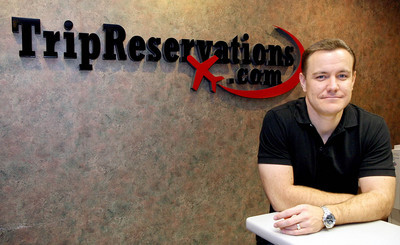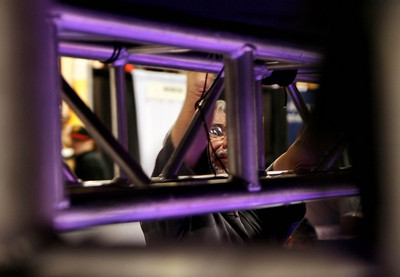With budgets tight, companies seek cheaper flights
Logic would suggest it's unlikely a passenger can miss a connecting flight when he isn't even scheduled to change planes.
Logging as many miles as Leo Falkensammer is a good way to learn logic doesn't always rule when it comes to business travel. But deftly navigating illogical obstacles can save savvy travelers time and money.
If logic ruled, Falkensammer, 64, a Las Vegas travel company owner, wouldn't have managed to miss a connection with an itinerary booked largely to avoid such a mishap.
"If they use the same piece of equipment, you would assume you are not going to miss connections," said Falkensammer, owner of Prestige Travel/American Express.
But that's exactly what happened last spring on an evening flight from New York's John F. Kennedy International Airport to Las Vegas with a stopover in Atlanta.
The Delta Air Lines flight was three hours late arriving in New York. The airline decided passengers who were supposed to board the plane in Atlanta had waited long enough, so it sent them ahead to Las Vegas on a different flight.
By the time his flight breezed into Atlanta around 11 p.m., the airline was done for the day. His brief stopover became an overnight stay in the Peach State.
"They had a plane in Atlanta so they used that, so when we got in there was no more flight to Las Vegas," Falkensammer said.
That's when experience kicked in to help Falkensammer, who estimates he travels more than 100,000 miles annually recruiting clients and scouting potential destinations.
Rather than foot the bill for the inconvenience, he called on the airline to pay for dinner, his hotel room and breakfast the next day.
Airlines will generally honor reasonable requests, but they won't necessarily volunteer to help out. But the minutes it takes to press for compensation can be well worth it.
In Atlanta, for example, Falkensammer got a room he estimated would have cost $100 or more plus $20 toward dinner and $10 for breakfast.
"If you don't ask, you don't get," Falkensammer said.
The opportunity for cutting travel costs varies depending on the business. Those with the most employees and most travel requirements have the most fat to trim, observers say.
Some, like Falkensammer, who owns a travel agency, suggest hiring outside help to coordinate travel.
Other businesses, particularly larger ones, can save by creating an in-house travel service.
That's how GES Exposition Services manages activity for the estimated 1,200 registered travelers in its corporate travel program.
The Las Vegas-based company is among the largest convention and trade-show contractors in the country and has a large presence in the city.
Nancy Thompson, corporate travel manager for GES, says she books 3,000 to 5,000 business trips annually.
To save money, the company moved from employing a team of five travel agents to a Web-based system called Cliqbook. About 90 percent of the company's business trips are booked by employees through the system, Thompson said.
"It guides our people in taking the lowest logical airfare," she said.
GES uses its bulk buying power to negotiate better deals with airlines such as Southwest, United and Delta. Attention to airfare is important because it represents as much as 40 percent of a business traveler's expenses, followed by hotel stays, car rentals and dining.
Even in an era of high-speed Internet and video conferencing, GES needs feet on the ground to help move trade shows into and out of town.
Setup for the International Consumer Electronics Show in Las Vegas, the largest trade show in North America, starts before Christmas, nearly a month before the January show. And workers need to return to Las Vegas when the show is over to move everything out.
"For CES, we had hundreds of people who needed to be moved in; they may have come from Chicago, they may have come from L.A.," said Thompson, describing how GES moves staff members around the country so it doesn't get caught short-handed during a big event. "You can't video-conference that."
In addition to convenience for frequent travelers, the GES Web-based booking system keeps expenses in check for everyone from top management to the lowliest cubicle-dwellers.
"If the CEO wants to fly first class that would be at his own discretion, not on the company's dime," Thompson said. "It is a policy for everyone and it is led by example."
There are many business travelers who don't own their own travel agency or work for a company that built its own on the Internet. And they're the ones who benefit the most from saving money.
Hawaii-based travel writer Brian Berusch uses technology to save time and money.
He knows hotel companies are waking up to the idea that business travelers need convenient -- and free -- Internet access on the road. So he's taking advantage.
"It used to be a luxury, now it is imperative," Berusch said. "I pretty much only stay at hotels with free wireless (Internet access)."
He capitalizes on the pervasiveness of free Internet connections by using Skype, an Internet-based phone service. The service lets users make calls over the Internet instead of burning through minutes on a cellular phone.
Using Skype keeps Berusch from being surprised by, "ridiculous, unexpected cell phone bills."
Berusch also takes advantage of digital navigation systems available in rental cars and on his mobile phone. That reduces another hidden cost, the price of getting lost en route to a meeting in unfamiliar territory.
"That amount of time that will be lost getting lost ... can make or break a successful business trip," he said.
Berusch's final bit of money-saving advice is to closely track miles earned through airline frequent-flier programs.
That's easier said than done for frequent travelers such as Berusch, who uses four business credit cards, two of which come with airline miles.
"I just lost something like 25,000 miles on United because they expired," he said. "That's a free ticket right there."
This story first appeared in the Business Press. Benjamin Spillman writes for the Business Press' sister publication, the Las Vegas Review-Journal. He can be reached at 477-3861 or bspillman@reviewjournal.com.
TIPS TO CUTTING COSTS • Keep close track of frequent-flier miles and use them efficiently. Don't let your miles expire before you use them. • Try to avoid booking flights with stopovers that are too long or too short. Missing a flight or having to spend an extra night in another city can be expensive and cost you business. • If you miss a connection, be sure to ask for compensation from the airline. Airlines generally are reasonable about honoring requests for compensation, but they may not offer unless you ask.























